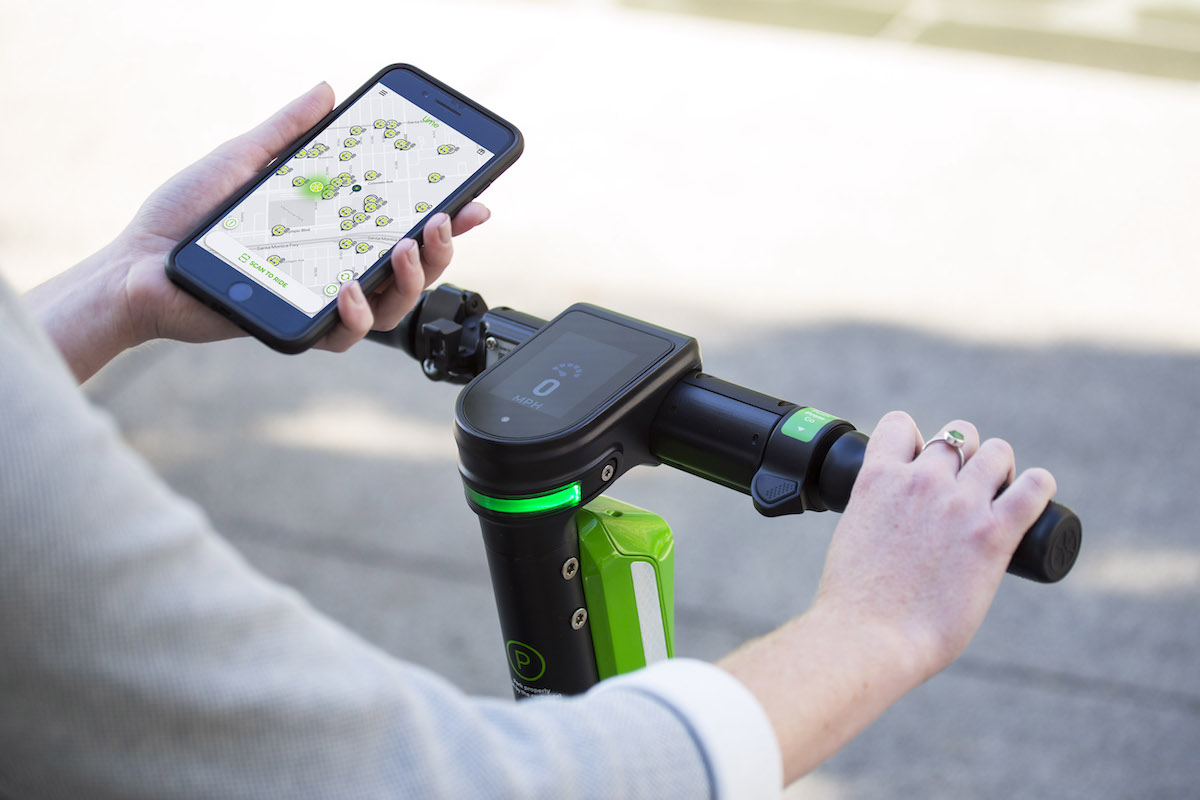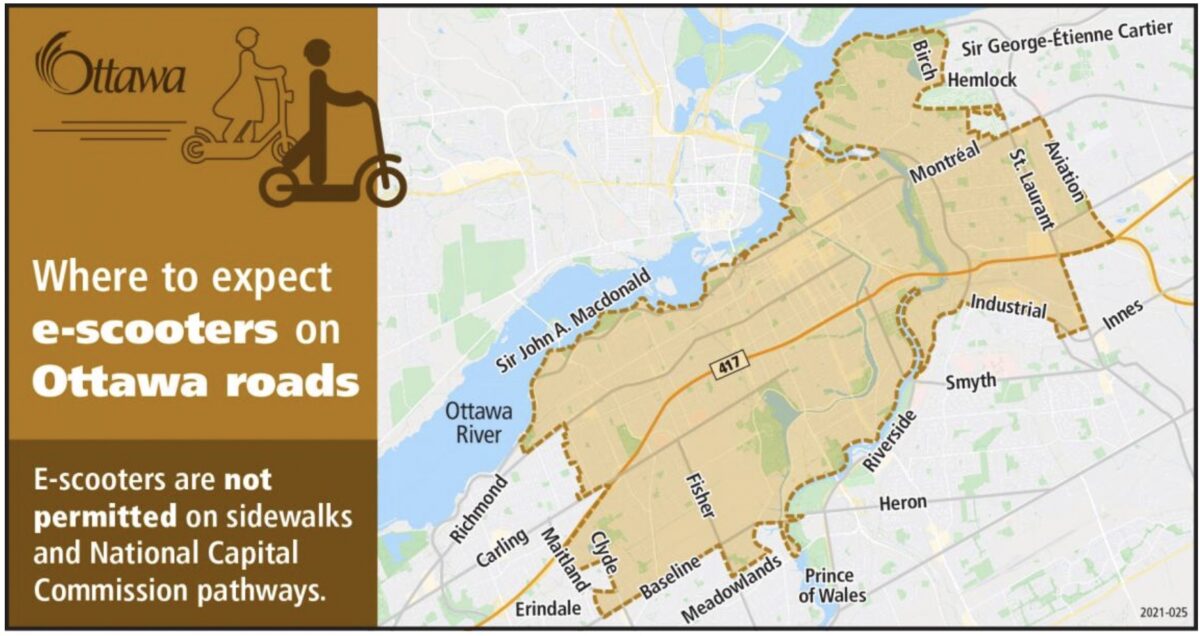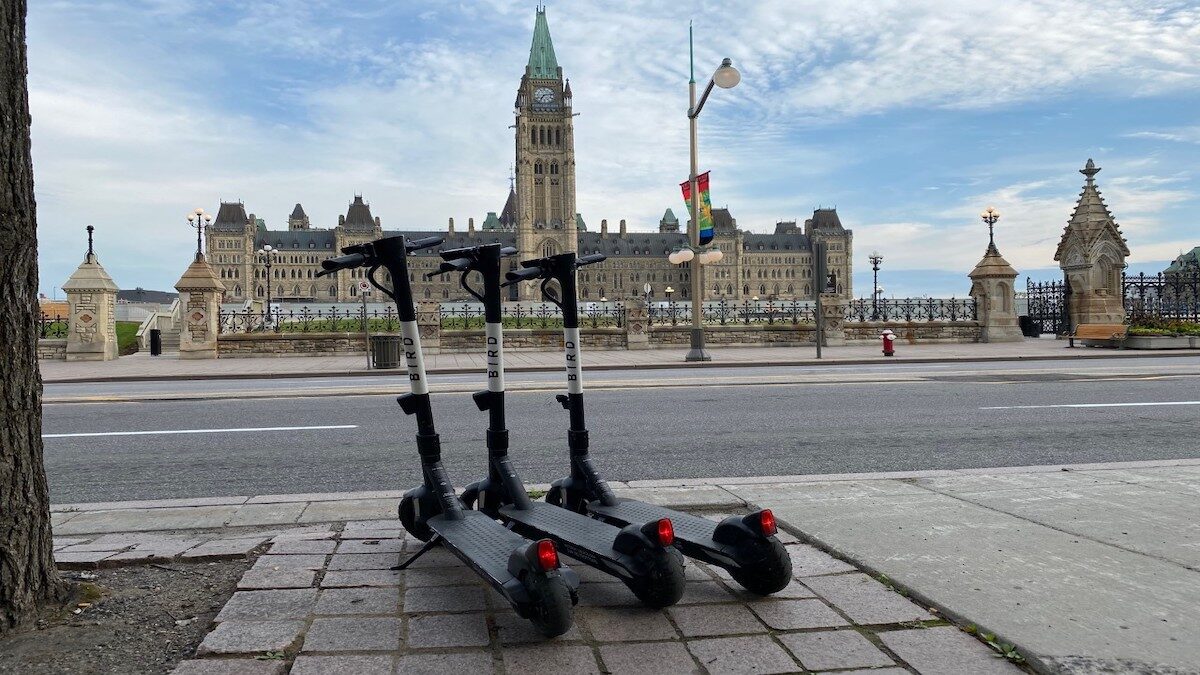During the second round of the City of Ottawa’s test drive of e-scooters, local residents saw many more people zipping up and down Ottawa streets on the devices.
Three companies — Neuron Mobility, Bird Canada, and Lime — provided e-scooters after this year’s season began on April 1, ending Nov. 30.

The 2021 pilot program saw a greater focus on safety and accessibility, an increased fleet of 1,200 e-scooters and almost twice as many rides taken.
“It’s been a runaway success,” said Stewart Lyons, CEO of Bird Canada, noting the program’s potential to reduce greenhouse gas emissions, vehicle traffic, and improve local economies.
“There’s not a city in Canada that isn’t focused on reducing vehicle traffic in their core areas,” he said. “From what I’ve seen in the past three years, scooters are probably the single biggest arrow in your quiver to deal with vehicle travel.”
A total of 238,094 trips were taken on e-scooters by the end of 2020’s season. As of Oct. 31 this year, the city had reported 452,808 total trips — with a month remaining.
A Neuron rider survey shared with Capital Current found that “47 per cent of all e-scooter trips replaced a car journey, helping to avoid harmful CO2 emissions.”

“I don’t know of anything that the city could do that has that kind of an impact that quickly on vehicle traffic,” said Lyons.
According to the City of Ottawa transportation committee’s 2020 Electric Kick Scooter Pilot Report, e-scooters also played a significant role in Ottawa’s economic recovery during the COVID-19 pandemic. Trip data from last year’s season showed that 45 per cent of e-scooter rides ended in a business improvement area — one of the city’s main retail districts.
Neuron said its rider survey also found that 79 per cent of riders in Ottawa used e-scooters to visit restaurants, cafés and explore the city, while 67 per cent made a purchase at either the start or end of their most recent trip.
Business owners and operators along Elgin Street expressed their support for the program in a letter to Mayor Jim Watson, saying that e-scooters “help bring more people to and from local businesses” and appear to be “fulfilling a local need in Ottawa for alternative transportation modes.”
These e-scooters are part of a five-year-long, Ontario-wide pilot that began on Jan. 1, 2020, allowing municipalities to permit the use of the devices on city roads. Ottawa City Council enacted the Electric Kick Scooter By-Law almost six months later, on June 24, and the 2020 shared e-scooter pilot began the following month.
“The whole micro-mobility trend is grasping hold of so many cities around the world, particularly in Europe but also in North America,” said Lyons.

In recent years, cities across Canada — including Toronto, Waterloo, Montreal, Calgary, Edmonton, Kelowna, Windsor and others — have launched similar projects with a variety of providers. More interest in the technology has allowed it to improve rapidly, says Lyons.
“There’s so many providers, there’s so many things the cities are requesting, and as a result of all that, the technology is accelerating very, very quickly,” he said. “We have new kinds of scooters that are able to do things they couldn’t even do three years ago.”
Providers such as Neuron and Bird have been testing ways to make shared e-scooters safer for pedestrians and those with accessibility concerns. Lime hadn’t responded to Capital Current’s inquiries prior to publication.
“We just want people to be patient and appreciate the fact that there is a way to solve (accessibility concerns) and make all parties relatively happy.”
— Stewart Lyons, CEO of Bird Canada
In the 2020 pilot report, Ottawa’s transportation committee said city officials had consulted with councillors, stakeholders, residents and members of the city’s accessibility advisory committee. “Generally, there is support for the pilot program,” it reads, “but the issues of sidewalk riding and mis-parked e-scooters that created accessibility issues were also identified.”
These concerns were expressed by some councillors, with Somerset Coun. Catherine McKenney voting against bringing the pilot program back for the 2021 season and Mathieu Fleury reporting complaints of injury and drunk drivers.
To combat these issues, new developments, such as sidewalk-ride detection, virtual corrals, improved geofencing and noise emission were tested in the final months of this pilot season.
Sidewalk-ride detection involves the beeping of a warning sound when an e-scooter is being driven on a sidewalk. Geofencing constrains the use of e-scooters to a defined geographical area.
The innovations are expected to be rolled out in Ottawa next year by Bird and Neuron if the pilot continues, according to Lyons and a Neuron Mobility spokesperson.
“We actually think the city should have a little bit less scooters,” said Lyons. “If you find the right balance, then naturally they’re almost always being ridden, and you don’t have to worry about a lot of mis-parked scooters.”
According to Lyons, Bird received 89 parking complaints out of 244,000 total rides this year and, on average, the concerns were resolved within eight minutes.
Making e-scooters a permanent part of Ottawa’s transportation network will take time, but Neuron and Bird say they are proud of how successful the program has been so far.
“We just want people to be patient and appreciate the fact that there is a way to solve (accessibility concerns) and make all parties relatively happy,” said Lyons. “Certainly, it’s a lot better than the alternative, which is no scooters and a heck of a lot more cars and a lot more parking complaints.”





How self-serving to claim e-scooters contributed to economic recovery. In fact they undermine fragile post-covid public transit ridership, not to mention making sidewalks unsafe for pedestrians and vulnerable residents.